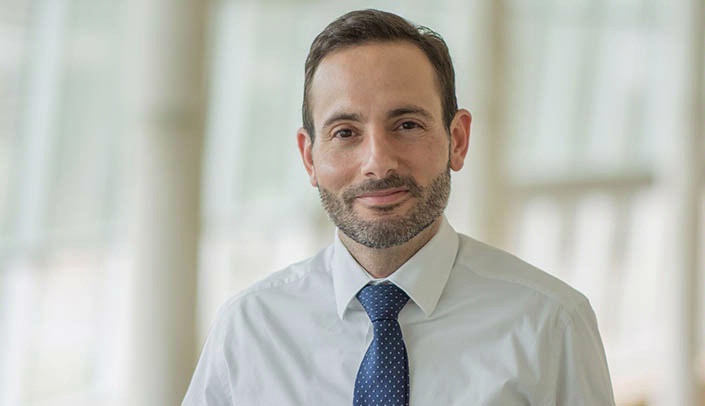It wasn't too long ago that people meeting Beth Conover thought she was a "generic" counselor.
Conover is actually a member of the Munroe-Meyer Institute's team of genetic counselors at the University of Nebraska Medical Center. After hiring three new team members this fall, MMI will have 10 genetic counselors on staff. Two other genetic counselors are employed in other UNMC departments. With the new additions, UNMC will employ 75 percent of the total number of genetic counselors in the state.
Genetic counselors are professionals whose training in both genetics and psychosocial sciences allows them to understand how patients make decisions, to look at the stress patients face and also understand how to explain the genetic test results in layman-friendly terms.
The recent growth at UNMC mirrors national growth in the field. It's estimated that the number of genetic counselors in the U.S. will increase 29 percent by 2024 — in part because of the major advances in genetic testing over the past decade. Also, UNMC soon will be offering a genetic counseling graduate degree.
According to MMI professionals, the expansion has been fueled by the health care industry's recognition of the value of genetic counseling, a profession in which trained scientists work with individuals and families not only to explain the results and ramifications of genetic test results, but to help people decide whether they want certain tests done at all.
When Terri Blase started her career as a genetic counselor 12 years ago, genetic counselors were primarily used in prenatal and pediatric care, and sometimes in specialties such as oncology and neurology.
"But within a matter of years, it seemed every clinic wanted a genetic counselor as part of its multidisciplinary approach, and that's really where things have changed," said Blase, a genetic counselor at MMI.
Omar Rahman, M.D., director of the MMI Department of Genetic Medicine, said the role genetics plays in health care has become clearer over time. He said the explosion of direct-to-consumer testing has led to more interest among the general public and cited 23andMe, a personal genomics and biotechnology company in California, as a key reason for the growth.
“Specialists are beginning to realize that knowing the genetic cause of a condition or disease can impact how it is going to progress, the kind of treatment needed and who else in the family might need to be screened,” Dr. Rahman said.
"We handle emotion-laden, complicated topics and make them understandable," Conover said. "We make it easier for patients and families to take in the information, process it and come up with a decision they can live with. That's the great art of genetic counseling."
Counselors also can help providers optimize genetic testing, as providers are increasingly recognizing that genetic testing is a key component of precision medicine, which will likely improve the delivery of care and eventually be used to prevent disease down the road, Dr. Rahman said.
This is leading to the increase in demand for genetic counselors and is one reason why other community health organizations, such as Children's Hospital & Medical Center, are supporting the creation of a master’s degree program in genetic counseling at UNMC, he said.
MMI's longstanding relationships with providers across the state has increased awareness about the importance of genetic counselors and led providers across Nebraska to request these services from MMI, he added.
"Genetics affects the entire lifespan, from prenatal to pediatric, adult, and cancer," Dr. Rahman said. "So there's a role for genetics in almost every discipline."
We are Nebraska Medicine and UNMC. Our mission is to lead the world in transforming lives to create a healthy future for all individuals and communities through premier educational programs, innovative research and extraordinary patient care.
Twitter | Facebook | Instagram | YouTube | Flickr
